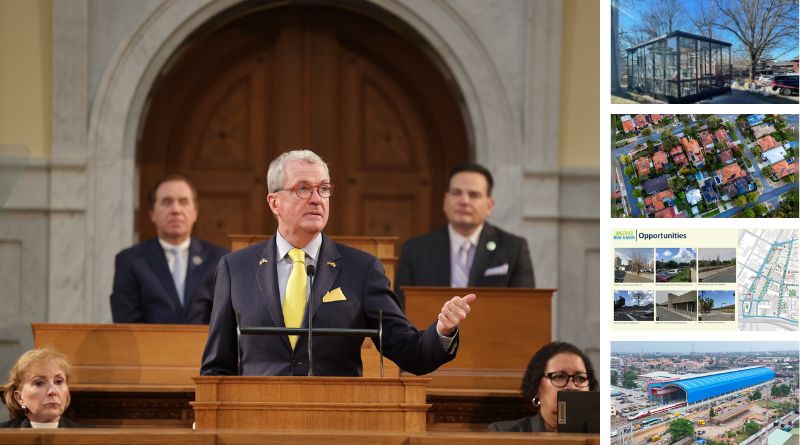Murphy proposes corporate tax to fund transit (left); Bike parking coming to Summit Station; San Antonio revamps station-area housing policy; New Haven begins downtown redesign project; Lagos opens Red Line Rail (right top-to-bottom)
Article of the Week
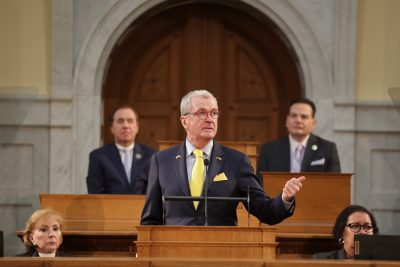
Murphy Proposes New Tax on Wealthy Corporations to Fund NJ Transit
Aaron Ginsburg, 6sqft, February 28, 2024
Governor Phil Murphy unveiled a plan during his annual budget address to raise taxes on New Jersey’s wealthiest corporations, introducing a “Corporate Transit Fee” targeting businesses with net taxable incomes exceeding $10 million per year to address NJ TRANSIT’s $900 million budget deficit. The proposal would increase the corporate tax rate from 9 to 11.5 percent for qualifying companies, and aims to establish a dedicated funding source for the statewide transit agency. The measure, which would affect between 600 and 700 companies, is projected to generate approximately $800 million annually, providing stable funding to address the agency’s financial challenges, including a planned 15 percent fare hike starting July 1. Possible photo caption: Governor Murphy delivers the FY2025 Budget Address in the Assembly Chambers in Trenton on Tuesday, February 27, 2024.
NJ TOD News
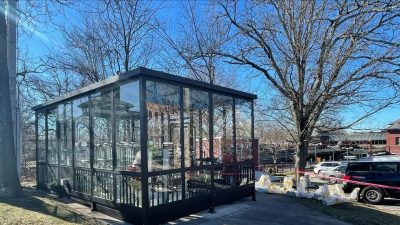
SUMMIT—Locked Glass Shed Coming to NJ Transit Station for Commuters to Store Bikes
Brianna Kudisch, NJ.com, February 28 2024
A new bike depot near the Summit Station, organized by local officials, the New Jersey Bike & Walk Coalition, and NJ TRANSIT, is set to open this spring, and will provide secure storage for commuters’ bikes. With glass storage sheds and a capacity for around 30 bikes, it joins other municipalities such as Jersey City, Montclair, Bloomfield, and Elizabeth in offering indoor spaces for bike storage, providing protection from theft and the elements. Funded partly through grants and donations, users will pay a nominal fee for access.
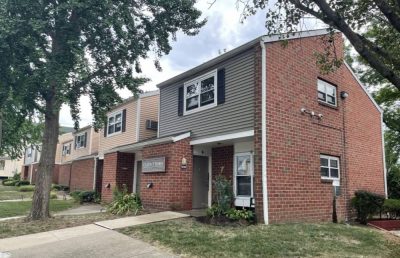
PASSAIC—Passaic, New Jersey, Pioneers Zoning Reform to Tackle Affordable Housing Crisis with ADUs
Staff Writer, BNN, February 27 2024
In an effort to address the shortage of affordable housing, the City of Passaic has proposed the adoption of a zoning change that would allow accessory dwelling units (ADUs) within existing homes. The initiative would allow homeowners to generate income and increase housing availability by permitting conversions of basements, attics, or garage apartments into rentable spaces. With specific guidelines ensuring adherence to standards and affordability, including a minimum unit size of 300 sq. ft. and maintenance of onsite parking, Passaic’s proposal represents an approach to sustainable,
multi-generational communities. Montclair and Princeton have adopted similar measures.
Transit and Equity News
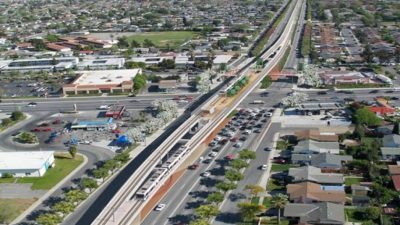
CALIFORNIA—Critical Vote on East San Jose Light Rail Project a Matter of Equity for Local Latino Community
Joseph Geha, San Jose, February 29 2024
Construction will soon start on a crucial light rail extension, which aims to bridge mobility gaps for East San Jose residents. The $653 million project will connect the Eastridge Transit Center to the Alum Rock Station and include a new station at Story Road. City officials and advocates highlight the light rail’s potential to improve access to jobs and education for the area’s low-income and largely Latino communities. The extension is set to be completed in 2028.

TEXAS—San Antonio Revamps Housing Policy to Tackle Affordability Amid Growth
Jesse Hoffman, Hoodline, February 27 2024
In an effort to address its affordable housing shortage, San Antonio plans for increased development around its proposed Advanced Rapid Transit (ART) route. In 2022, voters approved an affordable housing bond program to help address rising costs of real estate, much of it out of step for a city where the median household income is $59,000. Even as local officials work to address housing shortages, research from the University of Utah shows only 20 percent of existing units near the future ART stations are currently affordable.
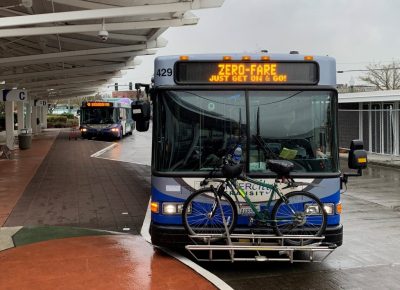
VIRGINIA—No fare! Free bus rides raise questions of fairness, viability.
Tim Henderson, Stateline, February 21 2024
Free bus rides in cities such as Richmond have aided lower-paid workers but have also raised doubts about long-term sustainability. While helping cities regain ridership, concerns persist regarding fairness and financial viability, particularly as federal pandemic funding wanes. Some cities have begun to consider the use of sliding scale fares to maintain affordability for lower-income riders, trying to balance accessibility with financial stability for public transit systems. Staffing shortages further complicate matters, with some transit agencies struggling to maintain service levels amidst changing commuting patterns.
Regional and National TOD News
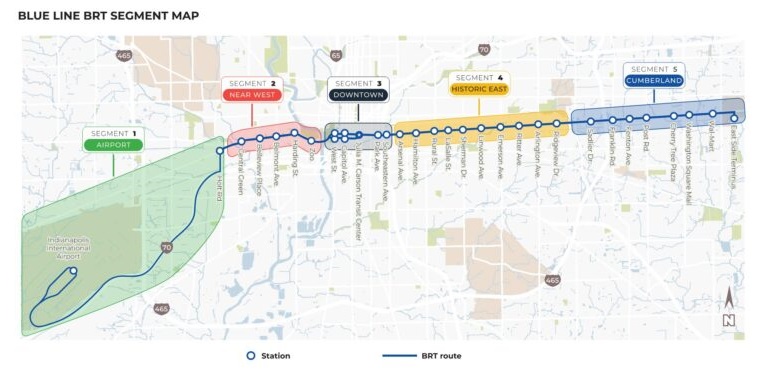
INDIANA—Bus Riders Are Glad Indiana Lawmakers Let Indygo Blue Line Move Ahead
Danielle Zulkosky, WISHTV, February 29 2024 Indiana lawmakers initially proposed a bill jeopardizing the future of IndyGo’s Blue Line bus rapid transit (BRT) project, sparking concerns among riders and local businesses. A recent announcement by House Speaker Todd Huston, however, stated that the project will proceed after a compromise was reached between IndyGo and state lawmakers that provides for two lanes of general eastbound and westbound traffic wherever possible along the Blue Line project route on Washington Street. This decision comes as a relief to riders who view robust public transportation as essential for the city’s competitiveness and accessibility.
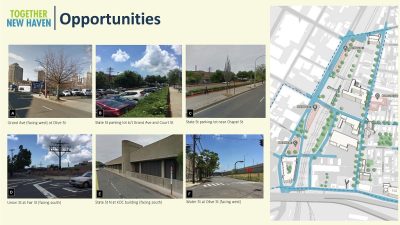
CONNECTICUT—New Haven Begins Reconnecting Wooster Square, Downtown, the Hill with $6.7 Million State Street Redesign
Mark Zaretsky, The Register Citizen, February 28 2024
New Haven has embarked on a $6.7 million State Street redesign project to revitalize a nine-block stretch around the State Street Station and foster transit-oriented development. The initiative, supported by state grants, aims to create a pedestrian-friendly corridor and unlock redevelopment potential of seven underutilized parking lots. Plans call for at least 450 housing units and 650,000 sq. ft. of mixed use development. Officials envision the project as a step towards reconnecting fragmented communities and revitalizing the area’s urban fabric.
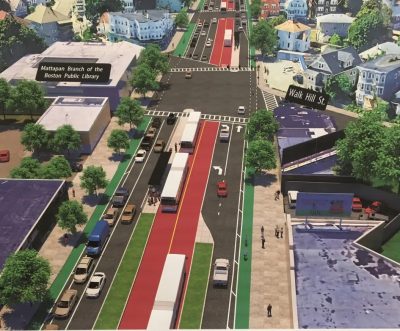
MASSACHUSETTS—Boston Officially Commits to Building Dedicated Busway on Blue Hill Ave Meghan Volcy, Streetsblog Mass, February 28 2024
The aim of the project is to address transportation inequities affecting predominantly Black and Brown communities by improving travel times and safety for the 27,000 daily bus passengers. Following extensive community engagement, the project, funded by a $44 million investment including $15 million from the federal government, $18 million from the City of Boston, and the remaining $11 million from the MBTA, will undergo a multi-year construction process to enhance access, safety, and economic vitality in historically marginalized neighborhoods. Major construction should begin in summer of 2026.
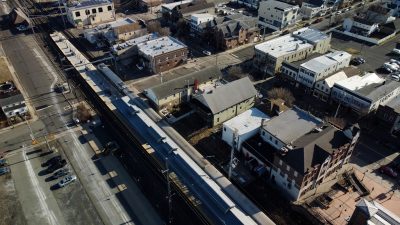
Spurring Housing Development Near Transit through Federally Funded Land Acquisition
Yonah Freemark, Urban Wire, February 27 2024
Housing affordability worsened in the US in 2023 due to high mortgage rates and rising costs outpacing incomes. To tackle this, the Urban Institute’s Yonah Freemark argues that policymakers could promote transit-oriented development to cut transportation costs and address housing shortages. However, limited funding and prioritization for transit-adjacent housing hinder such projects. The federal Capital Investment Grants (CIG) program could help, enabling more affordable housing near transit stations and reducing the overall cost of living. For example, in Montgomery County, Maryland, and Atlanta, Georgia, mixed-income apartments are being developed on public land near transit stations, showcasing the potential success of such initiatives.
International TOD News
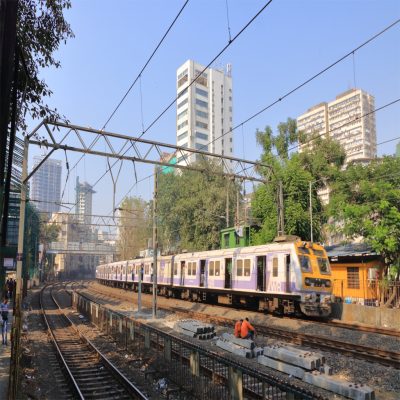
INDIA—Transit-Oriented Development Proposed Along Metro 3 Route Yogesh Naik, Hindustan Times, March 1 2024
The Mumbai government has proposed amending the Development Plan to facilitate transit oriented development (TOD) along the Metro 3 route, which would increase the floor space index (FSI) within 500 meters of the metro line. This initiative aims to alleviate traffic congestion by encouraging residents and workers in newly developed areas to access metro stations via underground vestibules.
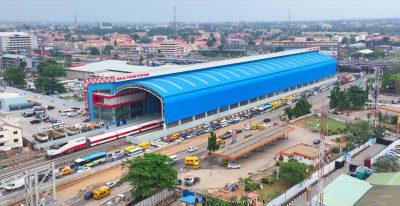
NIGERIA—President Opens Lagos Rail Mass Transit Red Line
Staff Writer, Railway Gazette, March 1 2024
President Bola Ahmed Tinubu inaugurated the first phase of the Red Line, a railway meant to relieve congestion and improve mobility within Lagos. The 16.3-mile, eight-station route seeks to serve as many as 500,000 riders each day during Phase 1. The project highlights Nigeria’s ambition to boost transit accessibility, as it cuts down travel times to the city center by two hours. Future expansions are to include service to Murtala Muhammed International Airport and will eventually result in six new rail lines.
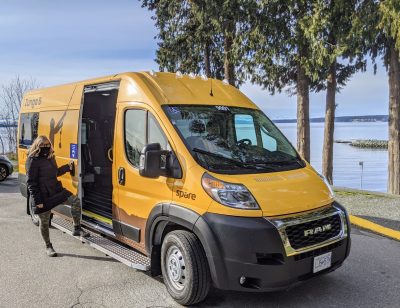
CANADA—Transportation Equity: First Nation Communities Urgently Need Solutions Now
Tiffany Dionne Prete, The Conservation, February 29 2024
A critical issue facing Indigenous Peoples in Canada is the lack of safe and accessible transportation, intertwined with alarming rates of missing and murdered Indigenous women, girls, and two-spirit individuals (MMIWG2S+). The 2019 Reclaiming Power and Place (RPP) report highlighted this issue and called for immediate action to address limited mobility in rural and remote areas. The termination of Greyhound Canada further exacerbated social and economic disparities, disproportionately affecting Indigenous populations. Recognizing transportation as a fundamental right, mobility justice advocates call for equitable access to transportation. Innovative solutions like the Zunga Bus and Indigenous-run services, such as the Keewatin Railway Company in Manitoba, offer hope for empowerment and change.

